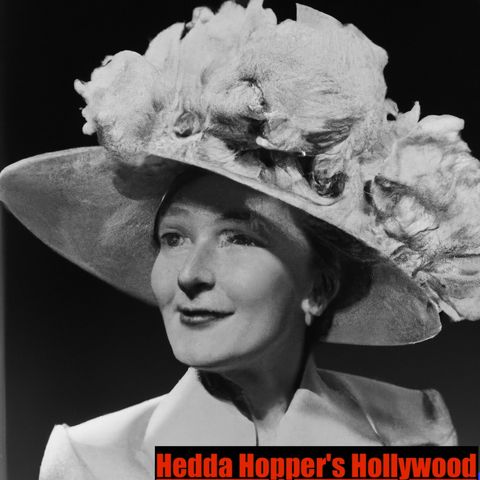Hedda Hopper was a renowned American gossip columnist and radio personality who held sway over Hollywood for decades. Her weekly radio show, "Hedda Hopper's Hollywood," captivated listeners with its insider scoops, sharp wit, and unapologetic style. Born Elda Furry in Pawnee City, Nebraska, in 1885, Hedda Hopper embarked on a career as an actress and singer before finding her calling as a gossip columnist. In 1938, she began writing for the Los Angeles Times, quickly establishing herself as a formidable force in the Hollywood press corps. Hopper's sharp intellect, extensive network of sources, and knack for storytelling made her the go-to source for Hollywood gossip. She fearlessly exposed scandals, feuded with celebrities, and wielded her influence to shape public perception. Her columns were eagerly consumed by millions, solidifying her reputation as the "Queen of Gossip." Hedda Hopper's Hollywood Radio Show In 1939, Hopper's reach extended to the radio airwaves with the debut of her weekly program, "Hedda Hopper's Hollywood." The show featured her signature blend of gossip, commentary, and interviews with Hollywood stars. Her charismatic delivery and authoritative voice captivated listeners, making the show a radio sensation. "Hedda Hopper's Hollywood" typically ran for 15 minutes, airing three times a week on various radio networks. Hopper's signature style was evident in her engaging narration, which blended factual reporting with personal anecdotes and opinions. She often employed a conversational tone, addressing her listeners directly as "my dears." The show featured regular segments, such as "Hollywood Highlights" and "The Hedda Hopper Interview," which showcased the latest news and exclusive interviews with celebrities. Hopper's signature segment, "The Blind Items," was a fan favorite, challenging listeners to guess the identities of anonymous stars involved in gossip-worthy escapades. "Hedda Hopper's Hollywood" ran for over a decade, becoming a must-listen for radio audiences nationwide. Hopper's influence extended beyond the radio, as her columns and radio show shaped public perception of Hollywood stars and contributed to the creation of celebrity culture. Hopper's legacy is complex and controversial. She was both admired and feared for her power and outspokenness, but her contributions to journalism and entertainment are undeniable. Her weekly radio show remains a significant chapter in the history of broadcasting, capturing the allure and intrigue of Hollywood's golden age. Thanks for listening to Quiet Please. Remember to like and share wherever you get your podcasts.
show less


Comments